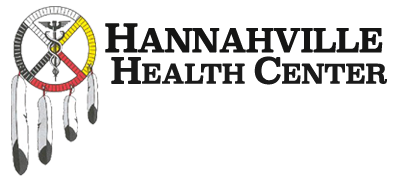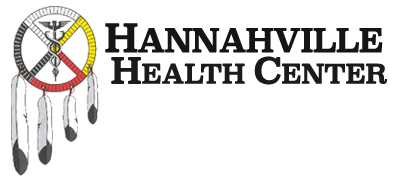Covid Resources
Frequently Asked Questions About COVID-19
COVID Resources, COVID testing and vaccination information
What is COVID-19?
COVID-19 is a new disease, caused by a novel (or new) coronavirus that has not previously been seen in humans. Because it is a new virus, scientists are learning more each day. Although most people who have COVID-19 have mild symptoms, COVID-19 can also cause severe illness and even death. Some groups, including older adults and people who have certain underlying medical conditions, are at increased risk of severe illness.
How does COVID-19 spread?
COVID-19 is thought to spread mainly through close contact from person to person, including between people who are physically near each other (within about 6 feet). People who are infected but do not show symptoms can also spread the virus to others. Cases of reinfection with COVID-19 have been reported but are rare. We are still learning about how the virus spreads and the severity of illness it causes.
COVID-19 spreads very easily from person to person
How easily a virus spreads from person to person can vary. The virus that causes COVID-19 appears to spread more efficiently than influenza but not as efficiently as measles, which is among the most contagious viruses known to affect people.
COVID-19 most commonly spreads during close contact
- People who are physically near (within 6 feet) a person with COVID-19 or have direct contact with that person are at greatest risk of infection.
- When people with COVID-19 cough, sneeze, sing, talk, or breathe they produce respiratory droplets. These droplets can range in size from larger droplets (some of which are visible) to smaller droplets. Small droplets can also form particles when they dry very quickly in the airstream.
- Infections occur mainly through exposure to respiratory droplets when a person is in close contact with someone who has COVID-19.
- Respiratory droplets cause infection when they are inhaled or deposited on mucous membranes, such as those that line the inside of the nose and mouth.
- As the respiratory droplets travel further from the person with COVID-19, the concentration of these droplets decreases. Larger droplets fall out of the air due to gravity. Smaller droplets and particles spread apart in the air.
- With passing time, the amount of infectious virus in respiratory droplets also decreases.
COVID-19 spreads less commonly through contact with contaminated surfaces
- Respiratory droplets can also land on surfaces and objects. It is possible that a person could get COVID-19 by touching a surface or object that has the virus on it and then touching their own mouth, nose, or eyes.
- Spread from touching surfaces is not thought to be a common way that COVID-19 spreads
COVID-19 rarely spreads between people and animals
- It appears that the virus that causes COVID-19 can spread from people to animals in some situations. CDC is aware of a small number of pets worldwide, including cats and dogs, reported to be infected with the virus that causes COVID-19, mostly after close contact with people with COVID-19. Learn what you should do if you have pets.
- At this time, the risk of COVID-19 spreading from animals to people is considered to be low.
How can I protect myself and others?
- Wear a mask to protect yourself and others and stop the spread of COVID-19.
- Stay at least 6 feet (about 2 arm lengths) from others who don’t live with you.
- Avoid crowds. The more people you are in contact with, the more likely you are to be exposed to COVID-19.
Avoid poorly ventilated spaces
- Avoid indoor spaces that do not offer fresh air from the outdoors as much as possible. If indoors, bring in fresh air by opening windows and doors, if possible.
Wash your hands often
- Wash your hands often with soap and water for at least 20 seconds especially after you have been in a public place, or after blowing your nose, coughing, or sneezing.
- It’s especially important to wash:
- Before eating or preparing food
- Before touching your face
- After using the restroom
- After leaving a public place
- After blowing your nose, coughing, or sneezing
- After handling your mask
- After changing a diaper
- After caring for someone sick
- After touching animals or pets
- If soap and water are not readily available, use a hand sanitizer that contains at least 60% alcohol. Cover all surfaces of your hands and rub them together until they feel dry.
- Avoid touching your eyes, nose, and mouth with unwashed hands.
Is it ok to donate blood?
In healthcare settings across the United States, donated blood is a lifesaving, essential part of caring for patients. The need for donated blood is constant, and blood centers are open and in urgent need of donations. CDC encourages people who are well to continue to donate blood if they are able, even if they are practicing social distancing because of COVID-19. CDC is supporting blood centers by providing recommendations that will keep donors and staff safe. Examples of these recommendations include spacing donor chairs 6 feet apart, thoroughly adhering to environmental cleaning practices, and encouraging donors to make donation appointments ahead of time.
Address:
Hannahville Health Center
N15019 Hannahville B-1 Road
Wilson, Michigan 49896
Contact Phone & Fax:
Phone: (906) 466-2782
Fax: (906)466-7454
Hannahville Health Center
N15019 Hannahville B-1 Road
Wilson, Michigan 49896


Hannahville Health Center
N15019 Hannahville B-1 Road
Wilson, Michigan 49896
Emergency: CALL 911
Phone: (906) 466-2782
Fax: (906) 466-7454


